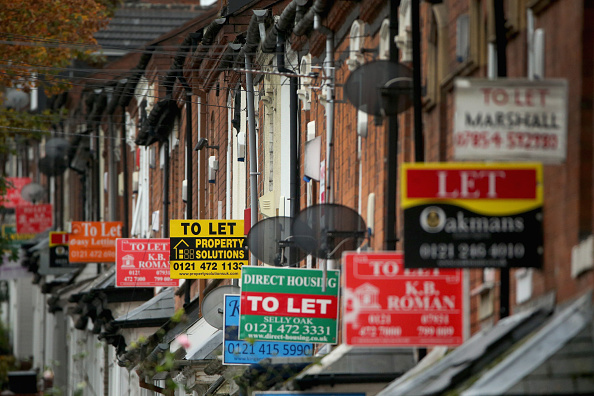Average house price rises to £366,000 as tenants look to escape rental crisis

UK house prices jumped again in March, driven higher by soaring rents pushing tenants to seek out their first home, but further interest rate hikes by the Bank of England could send a chill through the market, new research out today shows.
The average price of a property coming to market in Britain hit £366k last month, up £890. However, the 0.2 per cent increase was much lower than the historic price increase of 1.2 per cent at this time of year, according to property search site Rightmove.
Prices in London dipped slightly over the same period but are still at an eye watering £677k, far above the cost of buying a home in any other region.
“Agents are reporting that many sellers have transitioned out of the frenzied multi-bid market mindset of recent years and understand the new need to tempt spring buyers with a competitive price,” Tim Bannister, Rightmove’s director of property science, said.
Rents jumped 4.7 per cent in March, stimulating demand in the first-time buyer market as potential home owners seek to shield their finances. Monthly mortgage payments are typically lower than rent bills.
As a result of this demand surge, which Rightmove said increased 11 per cent, first-time buyer type properties also reached a new record price of £224k in March.
However, as the market begins to stabilise following the fall out from last September’s mini budget, Rightmove said that average mortgage rates have been decreasing over the last few weeks, raising the chances of Brits heading back to the market.
The average mortgage rate for a five year fixed, 15 per cent deposit mortgage is currently 4.46 per cent, with the lowest rate for this mortgage type standing at 4.19 per cent
This has edged down from an average of 4.65 per cent a month ago, but it is still “much higher” than the average rate of 2.64 per cent at this time last year.
“More competition amongst lenders in the smaller deposit, higher loan-to-value ranges is positive news for those would-be first-time buyers who have saved up their deposit and can still afford to move,” Bannister said.
Bannister warned that the Bank of England pushing through yet more interest rate rises to deal with historically high inflation is likely to price some potential buyers out of the market, darkening the outlook for house prices.
“It remains a challenging environment to get onto the ladder, with new record average asking prices and higher borrowing costs to budget for than a year ago,” he added.
Figures out last week from the Office for National Statistics revealed the rate of price increases in the UK stayed in the double digits last month at 10.1 per cent, shocking the City and the Bank’s economists.
Markets ran with that upside surprise, betting that bank governor Andrew Bailey and co will send borrowing costs to a peak of five per cent. They have already raised rates 11 times in a row to 4.25 per cent.
More rate rises will make it even tougher for young professionals in London to take their first step on the property ladder.
Matt Thompson, head of sales at Chestertons, told City A.M: “As the nation’s capital, London has always been a particularly challenging market for first-time buyers; especially with the Help to Buy scheme ending last year. Still, with rising rents, many are reviewing their finances and finding that buying works out more beneficial in the long term.
“As such, demand for properties has remained undeterred since the beginning of the year which is why, despite slightly more sellers entering the market, house hunters will find it difficult to negotiate the asking price.”
He added: “It’s therefore important to keep one’s fingers on the pulse of the market and be aware which areas of London might offer the best option within the individual budget.”
Return of the first time buyer?
Tomer Aboody, director of property lender MT Finance, said high rents had persuaded first-time buyers to take the plunge and commit to a property purchase.
“They are taking advantage of lower mortgage rates in recent weeks, as well as lenders prepared to lend at higher loan-to-values. The outcome is mortgage payments which are cheaper than renting, resulting in a sensible move in the longer term.
“There may be fewer buyers out there but sellers serious about selling are pricing realistically and subsequently are able to find a buyer.
“Regional areas are performing well due to lower pricing and better affordability than more urban areas, as many buyers still have less need to be centrally based as they continue to work from home either full time, or at least some of the time.”
Jeremy Leaf, north London estate agent and a former RICS residential chairman, said sales agreed may have been down but asking prices were holding up. “However, what we are seeing in our offices is that when it comes to the crunch those buyers who are either equity-rich or who have a ready-to-go mortgage are negotiating hard in order to get what they want. First-time buyers in particular are seizing the opportunity in increasing numbers to flex their muscles and get the best deals they can, in order to escape inexorably rising rents.”
“Encouragingly, lenders seem increasingly confident that the market will not suffer a serious correction as we are hearing there are far more high loan-to-value mortgages available, suggesting that they don’t foresee a market collapse. Activity is slowly improving as we get more into the spring market but buyer caution about the cost of living means they are taking their time before taking the plunge. Therefore sales are taking longer and sales agreed numbers are close to where they were just before the pandemic hit.”